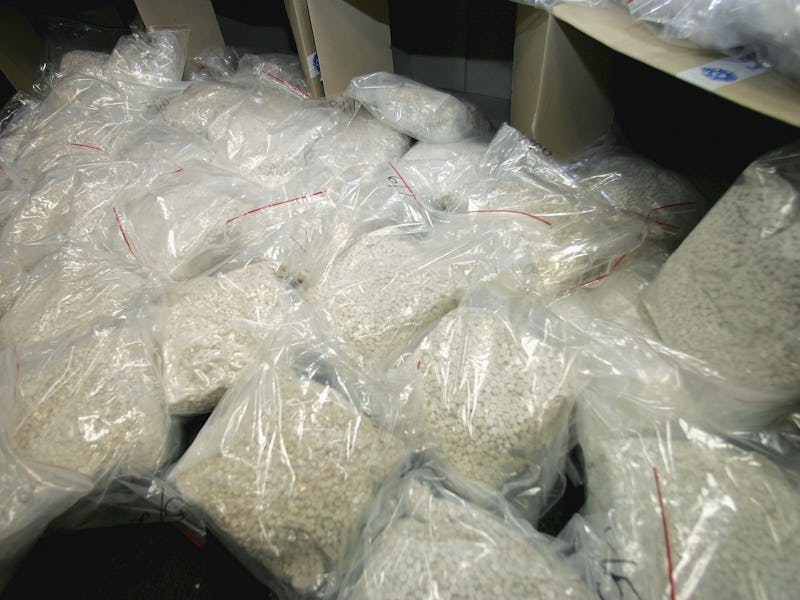Scientists Really Want to Be Allowed to Study MDMA
The drug could help those struggling with PTSD and autism. Why can't we study it?

Scientists are taking their case to use MDMA in research to the next level, with a commentary published Thursday in Cell.
It’s the latest chapter in the push by many neuroscientists and psychiatrists to include the study of the club drug in their research. The substance remains a Schedule 1 drug — the same class as heroin — and has been widely excluded from the field of psychiatric research despite many scientists believing it to have tons of potential for conditions like PTSD and anxiety.
Dr. Robert Malenka, a neuroscientist at Stanford University and one of the commentary’s authors, strongly believes that he and his colleagues should be allowed to pursue the study of the mechanisms of MDMA. Doing so might help medical professionals prescribe it as a psychiatric aid. Malenka believes that lumping MDMA in with similar-sounding substances like LSD and psilocybin is a mistake, though he says the idea of legitimizing its research has slowly gained traction over the last decade or so.
“I’m not saying legalize it,” Malenka said. “Just allow us to study it. For perhaps irrational political reasons, these drugs have been inappropriately demonized. I’m not saying they should be given out like aspirin or you should buy them off the street, it’s still an addictive property. But as a neuroscientist, I view drugs as just powerful probes of brain function — studying the action of a drug is no different than studying an animal or human you’re running through a learning and memory task. How does it respond, how does the circuitry of the brain change?”
Malenka has been interested in the psychiatric potential of MDMA for decades. A few years ago, he found himself in the company of other postdocs who shared his interest and were willing to do work in animal models, and decided to put in the paperwork to get a Schedule 1 license (“it’s a pain in the butt, it’s a bureaucratic hassle”) to study the effects in mice. He presented his findings last fall in a meeting that happened to be attended by the editor of Cell, which led to the argument’s publication.
One of Malenka’s more interesting hypotheses is that carefully controlled use of MDMA could help patients, especially those with PTSD, form a stronger bond with their therapists.
“This is me making complete guesses about why the early clinical studies with PTSD are showing such promising results,” Malenka said. “But when you take MDMA, you’re having a socially, emotionally intense interaction with someone — like how you would in a fairly intense therapy session. It wouldn’t surprise me that it would facilitate the development of a powerful, pro-social, empathetic trusting experience. And that buildup of empathy and trust would outlive the drug experience itself. It would enhance the therapy, allow the person to feel safer as they explore painful experiences.”
PTSD is a common refrain when discussing MDMA’s psychiatric potential, but the substance has implications for a multitude of conditions and symptoms. Autism spectrum disorder would be one of the more obvious ones, as MDMA encourages empathy and feelings of closeness. The same could potentially be said for offsetting the social isolation that accompanies schizophrenia. Malenka is already testing it in healthy mice as well as mice with models of autism. Studying MDMA and better understanding its mechanisms of action could lead to not just the controlled use of MDMA in a clinical setting, but the development of new drugs entirely.
“In a time when the pharmaceutical industry is painfully deficient in coming up with new ideas, here we have a substance that’s just been sitting around for decades because we have this perhaps inappropriate hysteria about its toxicity,” Malenka said. “If we can understand it on a molecular level, it opens the door to developing better drugs that have a higher benefit-to-side-effect ratio. It’s not a miracle drug where all of a sudden people take it and they’re cured, but might it not be worth testing in carefully controlled, rigorous studies?”